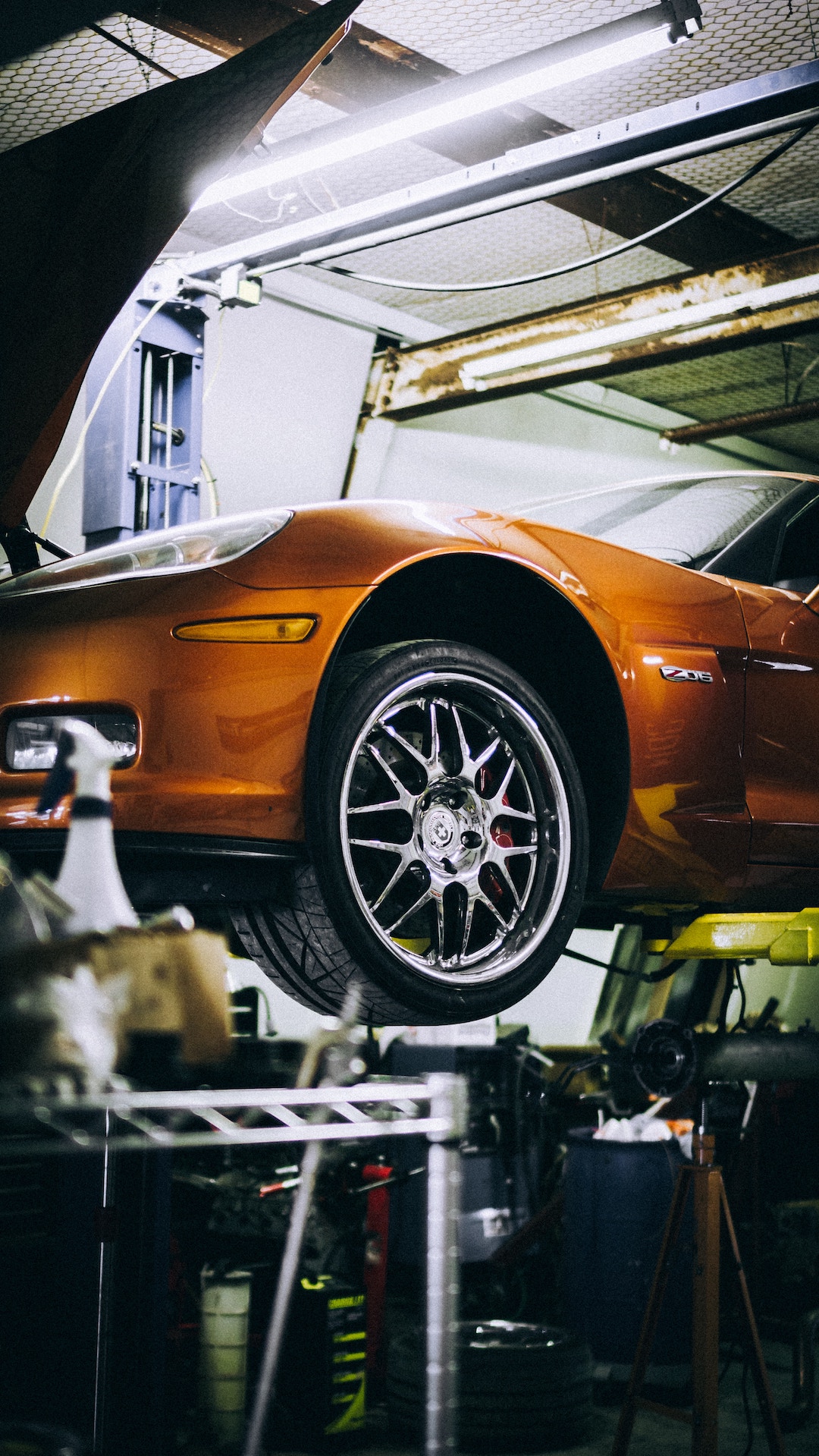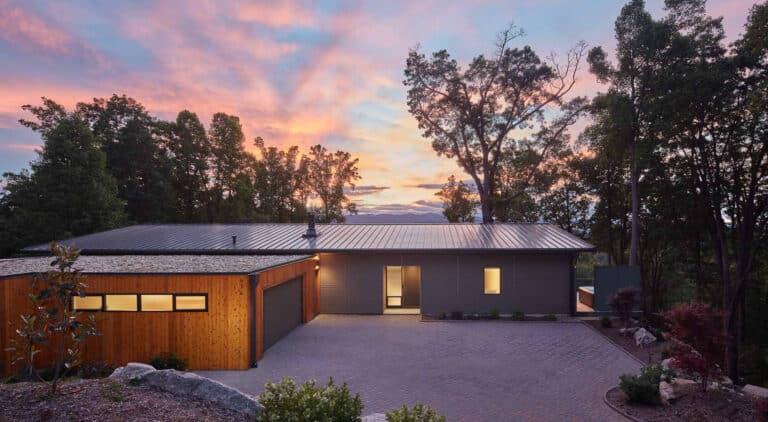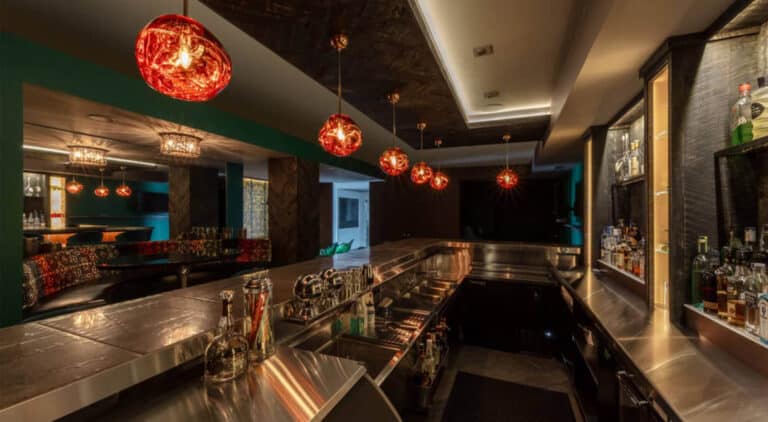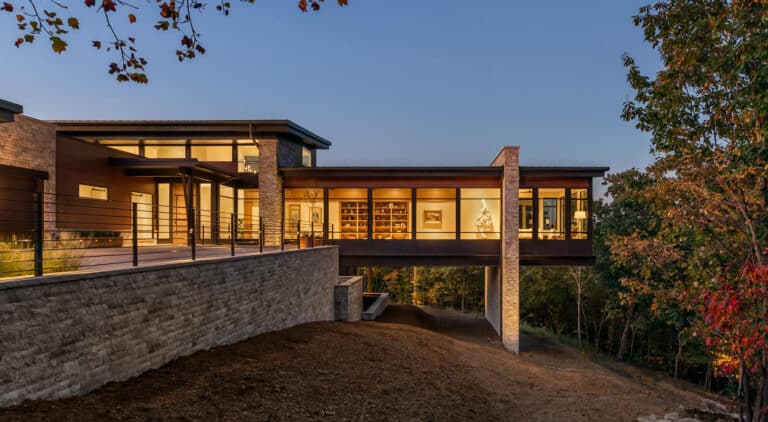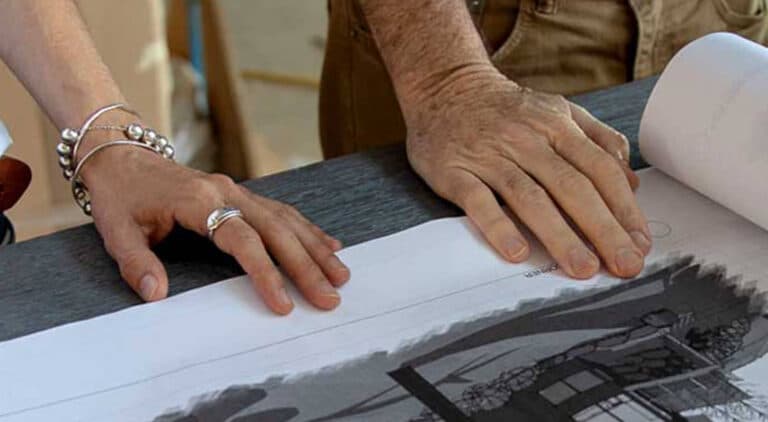Classic cars deserve fancy digs.
People use their garages for many different things. A garage may be where you store your landscaping tools, where you keep your carpenter’s workshop, or where you hole up for beer and the game. Your garage may be the first space you see when you arrive home and the last space you see when you leave. It’s an often under-appreciated but key part of your home and deserves the same thoughtful planning, expert craftsmanship, and attention to detail as the rest of your space.
But when you’re a classic car enthusiast, who uses your garage in the traditional sense of the word—to work on automobiles—that garage takes on a new, nearly sacred significance. And a working garage requires a different set of functional features than a garage that is simply used to store contemporary cars and gear.
My Favorite Classic Car: A Marina Blue, White-Upholstered ’67 Corvette
At Bluestone Construction in Asheville, NC, we know firsthand what it takes to custom-build a working garage that doubles as a showroom. And we know how difficult it is to restore a classic car when you don’t have the proper facilities.
As a luxury custom home builder who is normally a reserved, highly logical man, it’s fun to get very excited around fast cars. Specifically, fast, classic cars. Most specifically, he goes mushy for 1967 Corvettes, the last year of the second generation ‘Vette design, which many people still think of as the iconic Corvette. Years ago, Kevin single-handedly restored a 1967 Corvette, back when he was still developing the thriving custom-construction career he enjoys today.
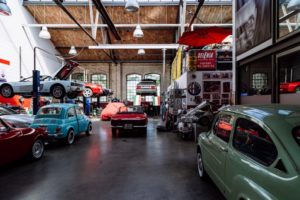
There are a few things classic car enthusiasts know about the ’67 ‘Vette. First off, it’s rare. Fewer than 23,000 of these models were produced, which is 4,000 less than the ’66 model and 5,000 less than the ’68 model. The ’67 Corvette offers a roomy (in the sports car world), bucket-seated cockpit of luxury for two, with a large, vinyl-padded instrument panel. The following year, the Corvette would get a major overhaul. The ’68 model features a more streamlined hood, more aerodynamic features, and a more crowded cockpit. The second generation body is only available on models made from 1963-1967, while the third generation body would be used from 1968-1982. This means the C2 style is much more of a true “antique” design, than a design that was current until just a few decades ago. That’s the kind of difference a year makes.
Kevin’s ’67 Corvette is a rich, gleaming cerulean, called Marina Blue. It has matching blue carpet and white vinyl upholstery. At the time of the restoration, Kevin was living in a two bedroom house. He took the body off the frame and disassembled it, storing all the parts in plastic bags in the spare bedroom. He sandblasted, repainted, and re-chromed the body, piece by piece. When he was done, he re-upholstered the entire interior.
It was a labor of love and the continuation of an self-education begun in his preteen years, when he taught himself the in’s and out’s of how things fit together under a car’s hood.
Kevin restored his Corvette under less-than-optimal conditions, but through the process, he discovered firsthand what garage features would have made the process easier and more fun.
When Designing a Garage For Classic Cars, Consider Function
Safety first.
You’re working with flammable liquids and power tools. Your garage probably needs a sprinkler system, and you definitely want a fire-extinguisher on hand. You’ll also need smoke and carbon dioxide detectors. If your garage is attached to the rest of your home, the linking door should have a premium fire-safety rating.
Good lighting is a must.
When working on classic cars, you need a well-lit space that simulates natural daylight. Ideally you want overhead lighting that’s temperature-calibrated to sunlight, in addition to wall-mounted task lights, for when you need to work at a closer range. The more natural light the better.
Electric outlets are key.
If you are renovating an existing space, you may need to have it rewired. Most garages don’t have enough outlets to power all your tools. If you’re custom-building from the ground up, ensure that the garage is wired appropriately. In addition to standard outlets, you need a 220 volt outlet for welding and a high-powered air tools.
Epoxy floors keep things clean.
You’re going to leak oil and other materials all over your garage floor. Epoxy floors look great and clean easily.
Climate control protects your investments.
You want to protect your classic cars from temperature extremes, humidity, and UV rays. Your garage is an extension of your living space, and as such, needs to be served by a residential-grade heating and cooling system. If you’re building from the ground up, radiant heating is the best option. A built-in dehumidifier is also a good idea.
In terms of protecting your antique finishes and upholstery from sun damage, you may want to avoid windows that allow direct light on the vehicles. Installing motorized skylights, which close completely when the garage is not in use, or have windows designed so that the light is indirect.
Stay organized.
Any space is more pleasant when it’s organized. Take it from Kevin, rebuilding a classic car is much less frustrating when you can find exactly what you need, when you need it. (We don’t recommend the guest room storage method!) Custom-built steel cabinets are tough enough to withstand wear, are aesthetically-appealing, and really help you stay on top of organization.
You need a work bench. You dream of a build bay and a wash bay.
You definitely want a built-in workbench in your customized garage.
If you have the space, why not include both a build bay and a wash bay? That way, you can wash and detail your classic vehicles in an entirely separate space, not contaminated by the grime that accumulates during mechanical work. Tiled walls, a built-in power washer, and a central drain can help make your wash bay visually appealing and functional.
A large wash basin and excellent drainage make clean-up easier.
If you don’t have a wash bay, consider a super-sized sink.
Hydraulic lifts allow you to access the underbelly of a vehicle, as well as maximize your square footage.
If you keep multiple cars in your garage but have limited space, a lift will allow you to store vehicles vertically. If space isn’t a concern, an in-ground lift is a good option.
You need cold storage.
Your garage needs a refrigerator for things such as batteries—and beverages.
Don’t Forget The Classic Car Extras
Your customized garage is about function, but it’s also about having your own space to do your own thing. To this end, you may want to install high-end speakers, so you can rock while you tinker.
Consider a multi-room or even a multi-level garage. Do you want an upstairs office, where you keep all your collectible car documents? Do you want a place to watch movies and the game—a second level, with a large-screen TV, comfy furniture, perhaps even a bar?
Is there room above your garage for an at-home gym?
You plan to spend a lot of time in your luxury garage. You should make it exactly what you want it to be, whether that’s an additional workspace, a workout space, or an entertaining space.
Your combination work-play garage is a significant investment, so you probably want to trust the process to an award-winning builder who intimately understands the process of restoring a classic car, as well as the monetary and sentimental value that car holds.
If you are looking to live in the Asheville, NC or Greenville, SC area, we’d love to work with you. Schedule an appointment to talk garage poetry.

